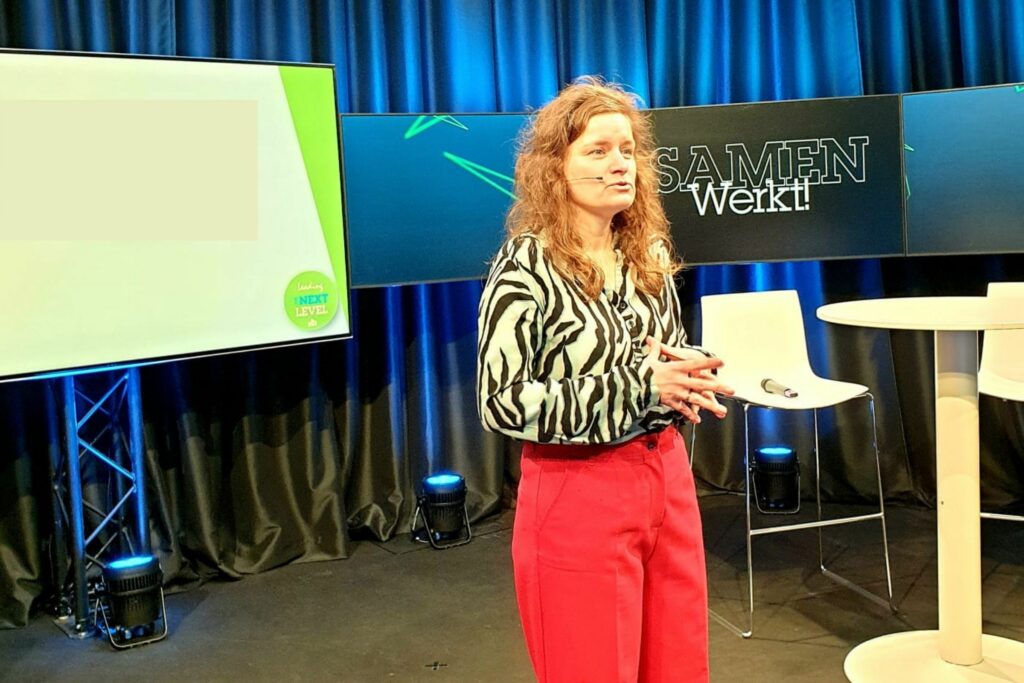Photo by Nele
Earlier this year, KBC asked me to deliver a keynote at their ‘Working Together’ event on psychological safety and creating a culture of feedback. About 500 leaders followed the event live. It was a pleasant collaboration for which I received many positive reactions.
Below is a short summary of the keynote.
Bridgewater's story
Bridgewater is an American hedge fund that currently manages around 150 billion dollars for funds, foundations, etc. The founder of Bridgewater is Ray Dalio, who has become somewhat of a cult figure. He went bankrupt in the 1980s as he had completely miscalculated the debt crisis. He calls it the most painful event of his life, but also the best experience because it completely changed his views on decision-making.
His idea of good feedback is what he calls “Radical Transparency”. In short, he has created a culture where everyone is asked to speak up and give feedback that helps others grow. It’s not just about knowledge, about knowing more, it’s mainly about personal growth, ‘who am I’ and how do I relate to others and the world. ..for everyone, including Dalio . He understands that he can only seepart of reality and wants to learn what other people think, from the most senior to the most junior, because only then can you get a broader picture of the world. And this is why he had a plan when the 2008 financial crisis occurred.
Bridgewater not only managed to minimise the losses for their clients, they also made a profit for their clients. And why? Because all scenarios were laid out, because a feedback culture was created that allowed the best ideas to emerge…
Embracing radical truth and radical transparancy will bring more meaningful work and more meaningful relationships.
- Ray Dalio
Psychological safety is essential
In order to create a culture of feedback, you don’t necessarilly need ‘radical transparency’, but you do need a psychologically safe environment.
Psychological safety means that people can say what they think, share their concerns and talk their mistakes without feeling that they are being punished or ignored in any way.
More and more organisations have started to deliberately focus on psychological safety, also because research shows that it offers a competitive advantage to organisations. Since people feel they can say what is needed, this has positive implications for the business because the wisdom that is present throughout the organisation, can emerge.
No 21th century organization can afford to have a culture of fear. A fearless organization is not only a better place for employees, it's also a place where innovation, growth and performance take hold.
- Amy Edmondson (Harvard Business School, author of 'The Fearless Organization")
At Bridgewater, Dalio invites his people all the time to ask why he may not be right, why his ideas might be wrong. He also makes people feel how important it is to make mistakes and to talk about them. One of the studies describes how he sent an email to the entire firm with the title ‘I fail every day’.
As a leader he is setting the stage, leads by example.
The leader sets the stage
If, as a manager, you want to create a psychologically safe environment, there are a number of guidelines that can help you. Amy Edmondson calls it “setting the stage” for example:
- Be humble, show your vulnerability
- Ask questions, the right questions, there is a lot of knowledge in the organisation and listen, listen deeply, reflect on the feedback you receive
- Invite people to share their mistakes; talke about what you find difficult to handle, about what is uncertain
Feedback? Psychological safety?
Vertical development leads the way
And maybe you are thinking right now that you haven’t heard anything new and that’s exactly the problem. Just because just because you know what to do, it doesn’t mean you can actually do it!
You can learn those guidelines by heart, but applying them is something completely different…
You need more. I am not talking about the all the knowledge and skills you have acquired of the year, but about the way you see yourself, others and the world. That’s what we call vertical development.
So, it’s kind of a chicken and egg story: the more you grow, the easier it becomes to give and receive feedback, and to give feedback you need psychological safety, which you create by growing as a person and as an organisation. A culture of feedback needs psychological safety in order to thrive.
Edmondson, A. C. (2018). The fearless organization: Creating psychological safety in the workplace for learning, innovation, and growth. John Wiley & Sons.


